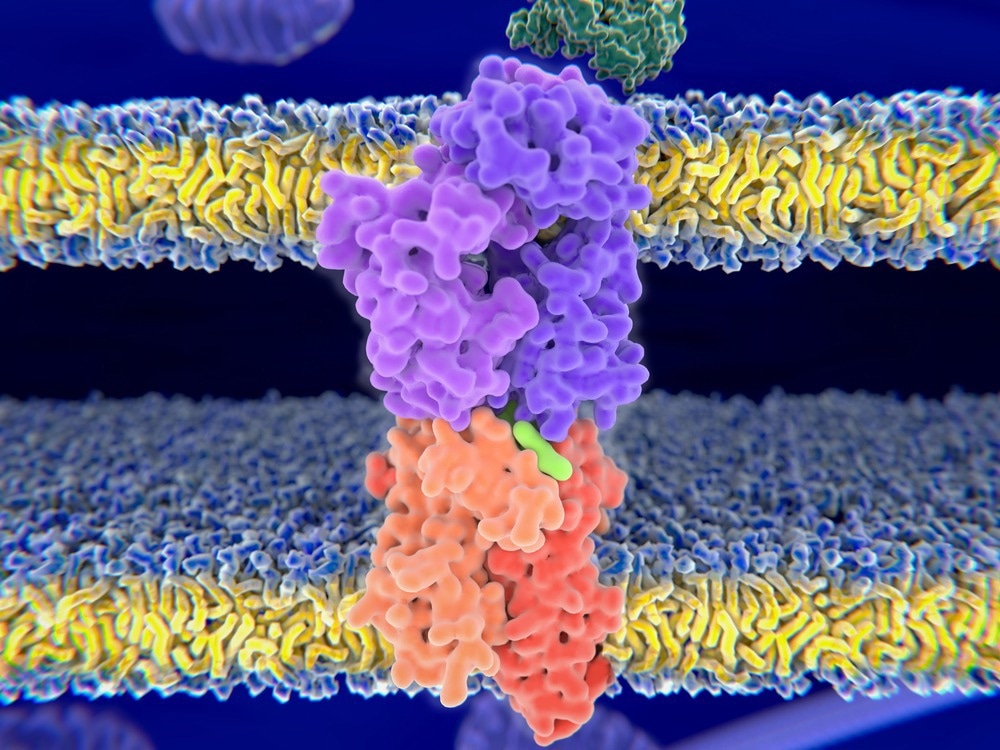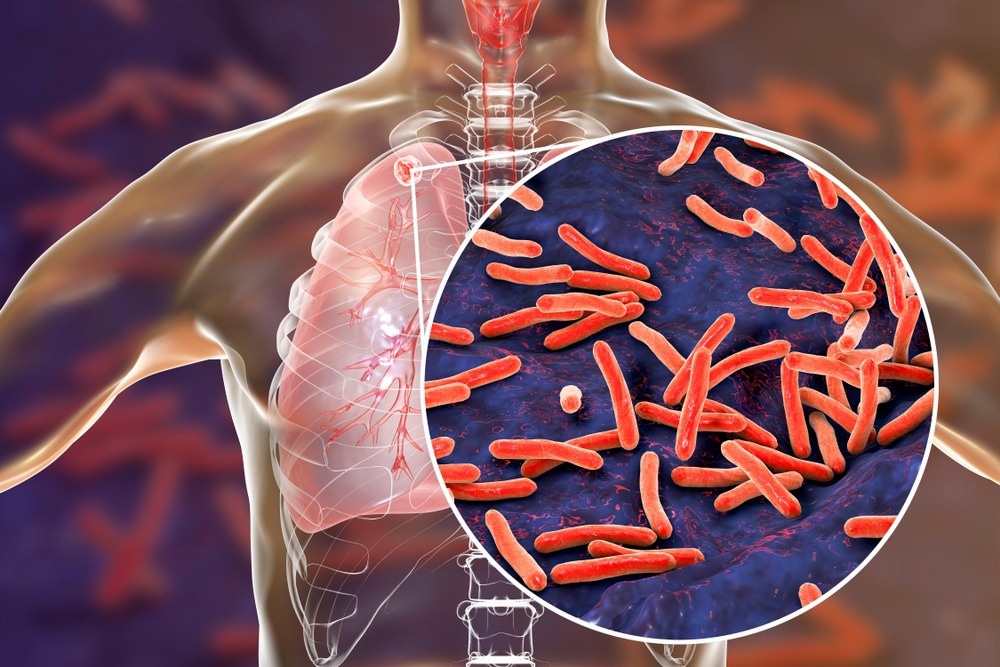What are host-specific genes?
The immune response is highly variable between individuals, and genes specific to the host can determine the outcome of an infection. Host-specific genes and individual variability have evolved due to the selection pressures of interacting with pathogens.
Host-specific genes are influenced by polymorphisms which are one or more variants of the gene. These polymorphisms can dictate infection susceptibility and the responses to infection. This article will outline examples of how host-specific genes impact the immune response and emphasize the importance of these genes.

Image Credit: Juan Gaertner/Shutterstock.com
Genetic polymorphisms and their influence on immune response
Major Histocompatibility Complex (MHC)
One of the most important host-specific genes that influence immune response are the genes that make up the MHC complex, also known as human leukocyte genes. The MHC complex is found on chromosome 6 in humans and comprises more than 200 genes, and these genes bind to peptide fragments presented by pathogens on their cell surfaces to be recognized by T cells. This results in the definite elimination of the pathogen, and the highly polymorphic nature of the MHC complex make it near-impossible to evade the immune system.
Genome-wide association studies have shown genetic variation in the encoding of HLA genes can influence the individual's response to infection. HIV is one of the pathogens that provides evidence for immune response variation due to HLA polymorphisms. A study identified that individuals with heterozygous class I alleles (HLA-A, HLA-B) led a delayed onset of AIDS. This highlights the importance of host-specific genes as this variability confers a significant immunological advantage to the individual regarding how they respond to the infection.
In addition, MHC molecules are also responsible for producing the T- cell receptor (TCR) repertoire. The heterozygosity of the MHC alleles influences the binding strength of T cells to TCRs, and those that bind too strongly cause T-cell death, and those that bind weakly fail to illicit a sufficient response. This is extremely important as this will influence antibody response and could also influence T-lymphocyte production.
Consequently, even if the population is exposed to the same pathogen, some may be more susceptible to infection than others due to the variance of MHC alleles and resulting differences in TCR repertoire.
Interleukin 6 (IL6) polymorphisms
IL6 has an important role in regulating immunity by initiating early responses to infection, such as fever, macrophage, and T-cell activation. IL6, although it is released by most cell types, is cleared immediately from circulation after responding to an infection, so gene expression levels regulate the levels of IL6 in the blood.
Polymorphisms at gene expression sites can influence the expression level and IL6 response to different stimuli. Heterozygous advantage can be observed in IL6 as well, whereby the heterozygous polymorphism confers the ability to have a flexible immune response, i.e., different variations of reactions to the same pathogen.
How do host-specific genes influence immune responses to infections?
Tuberculosis (TB)
Although a strong genetic locus that shows a link between TB susceptibility and genetic polymorphisms is still to be demonstrated, a study identified MHC class II variants in an Icelandic population, which were linked to differences in TB susceptibility.
Additionally, mouse models infected with TB showed that a deletion of the TGM6 gene caused an increase in cytokine transcription resulting in greater tissue damage and bacterial burden. However, the direct link is yet to be determined, but this shows how the slightest changes in the genes can determine the outcome and pathogenesis of a disease.

Image Credit: Kateryna Kon/Shutterstock.com
Malaria
Malaria, a parasitic infection, is one of the most prominent examples of how important host genetics can be in the immune response. GWAS studies have found a mutation in the CD40L, a glycoprotein involved in B- cell production and antigen presentation, which is crucial in the immune response to the parasite. Variance with this gene showed protection against cerebral and malarial anemia.
Another example is the variation in toll-like receptors (TLRs), which are part of the innate immune response where they recognize pathogen-associated molecular patterns (PAMPs) presented on the pathogen's surface. Polymorphisms have also been thought to affect cytokine levels in Plasmodium vivax malaria infection as TLR signaling also includes downstream activation of pro-inflammatory cytokines such as IFN-g, IL-6, IFN-1, etc. The variation in TLRs again highlights the importance of host genetics in influencing immune responses.
Conclusion
This article highlighted a few examples of how host genetics can influence the immune response and affect an individual's susceptibility to a disease and its outcome. Therefore, it makes studies such as GWAS extremely important, as they highlight different genetic loci and contributing variations allowing scientists to understand better the huge diversity present within the population's immune systems, providing an understanding of why individuals respond differently to the same pathogen.
However, apart from genetic factors, factors such as diet, environment, age, and sex also significantly influence the immune response, so they should be considered when studying the immune response to different pathogens.
Sources:
- Kwok, A. J., Mentzer, A. & Knight, J. C. (2021). 'Host genetics and infectious disease: New tools, insights, and translational opportunities' Nature Reviews Genetics, 22 (3), pp. 137-153. DOI: 10.1038/s41576-020-00297-6 Available at: https://doi.org/10.1038/s41576-020-00297-6.
- Penha-Gonçalves, C. (2019). 'Genetics of malaria inflammatory responses: A pathogenesis perspective' Front Immunol, 10 p. 1771. DOI: 10.3389/fimmu.2019.01771.
- SA, F. (2002). 'Genetic variability of hosts ', Immunology and evolution of infectious disease. Princeton (NJ): Princeton University Press. Frank SA. Immunology and Evolution of Infectious Disease. Princeton (NJ): Princeton University. Press; 2002. Chapter 8, Genetic Variability of Hosts. Available from: https://www.ncbi.nlm.nih.gov/books/NBK2401/
- Janeway CA Jr, Travers P, Walport M, et al. Immunobiology: The Immune System in Health and Disease. 5th edition. New York: Garland Science; 2001. The major histocompatibility complex and its functions. Available from: https://www.ncbi.nlm.nih.gov/books/NBK27156/
Further Reading
Last Updated: Nov 29, 2022